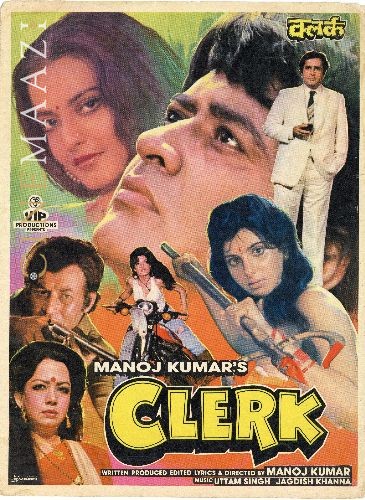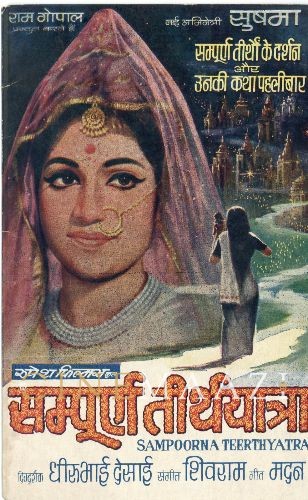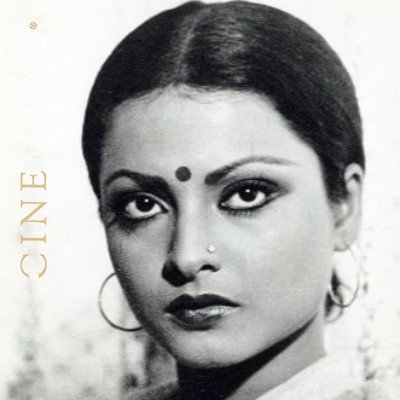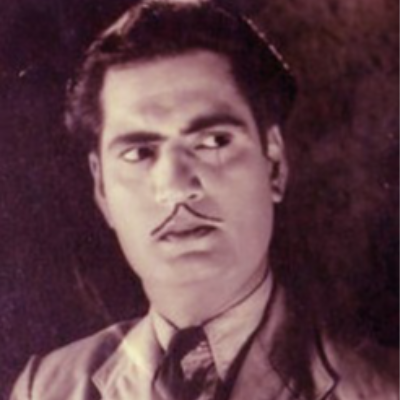Zeba

Subscribe to read full article
This section is for paid subscribers only. Our subscription is only $37/- for one full year.
You get unlimited access to all paid section and features on the website with this subscription.
Not ready for a full subscription?
You can access this article for $2 , and have it saved to your account for one year.
- Real Name: Shaheen Bano
- Born: 10 September 1945 (Ambala, Punjab, British India)
- Primary Cinema: Hindi
- Parents: Lali Begum and Azam Khan
- Spouse: Khawaja Rehmat Ali, Sudhir, Mohammad Ali
- Children: Samina Ali
One of the most respected and graceful actresses of the Pakistan film industry, Zeba—born Shaheen Bano—is known for films such as Armaan (1966), Dushman (1974) and Clerk (1989). One of the top stars of the Pakistani film industry in the 1960s and the early 1970s, she was also voted among 25 of the greatest actors of Asia in a 2010 CNN poll. In the course of her career spanning almost three decades, she acted in several commercially successful as well as critically acclaimed films, many of which featured her alongside actor and husband Mohammad Ali. The only Hindi film she featured in was Manoj Kumar’s Clerk (1989). Among the awards and recognition she received is the Hilal-i-Imtiaz award in 2016 by the President of Pakistan, as well as the Nigar Award for best actress three times in her film career for Armaan, Insaan Aur Aadmi (1970) and Mohabbat (1972). She had also received two special Nigar awards, namely the millennium award in 1999 and the Ilyas Rashidi gold medal in 2002. Later, she was also known for reciting nohas during Muharram on PTV. She is regarded as one of the icons of the golden period of Urdu films.
Born on 10 September 1945, to parents Lali Begum and Azam Khan in Ambala, Punjab, her family migrated to Pakistan when she was three years old. In 1961, she was offered the role of the heroine in producer Noor Mohammad Khan’s Zindagi; however, due to unknown reasons, the film was shelved. Thereafter, she accepted a role in another film Shakir; the film was eventually released in 1962 with a new title - Chiragh Jalta Raha. She played a character called Jameela in the film produced and directed by Fazal Ahmad Karim Fazli. The star cast also comprised Aftab Ahmed, Mohammad Ali, Arif, Deeba Begum, Talat Hussain, and Kamaal Irani. The central theme of the film revolved around how politicians abuse the system. Premiered by Fatima Jinnah, who was the chief guest at the opening ceremony held at Nishat cinema, Karachi, the film received positive reviews from critics and became a silver jubilee hit.
The same year, she also acted in the Munawwar Rasheed-directed Jab Se Dekha Hai Tumhay (1962) which earned her critical success. Over the years that followed, she acted in several notable and successful films including the S Suleman directed hit film Baaji (1963), Eid Mubarak (1964), Taubah (1964) which was a golden jubilee hit, Kaneez (1965), Dard-e-Dil (1966), Koh-e-Noor (1966), Josh (1966), Suhagan (1967), Taj Mahal (1968), Anjaan (1970), Mohabbat Rang Laye Gi (1970), Ek Phool Ek Pathar (1970) and Bahu Rani (1969).
Among the other films she acted in over the decades are Heera Aur Patthar (1964), Aisa Bhi Hota Hai (1965), Eid Mubarak (1965), Jaag Utha Insaan (1966), Kohe Noor (1966), Insaniyat (1967), Rishta Hai Pyar Ka (1967), Baalam (1968), Pakeeza (1968), Taj Mahal (1968), Insan Aur Aadmi (1970), Duniya Na Manay (1971), Daman Aur Chingari (1973), Dushman (1974), Gumrah (1975), Phool Aur Sholay (1976), Kora Kaghaz (1978), and Clerk (1989). Clerk, as previously mentioned, was the only Hindi film she featured in along with Mohammad Ali, as part of the ensemble cast comprising including Rekha, Anita Raj, Shashi Kapoor, Rajendra Kumar, Ashok Kumar, Prem Chopra and Sonu Walia. She essayed the role of Rukmini, the sister-in-law of Bharat (Manoj Kumar).
Among her prominent films was the 1966 romantic drama Armaan directed by Pervez Malik, in which she starred opposite actor-producer Waheed Murad. It revolved around a young girl who takes in her friend's baby and becomes an unwed mother, ostracised by society. When a young man falls in love with her, this leads to heartache. A resounding success at the box office, it was reportedly the first Pakistani film to complete 75 weeks in cinemas and, thus, became the first Pakistani (Urdu) platinum jubilee film. She also won her first best actress award from Nigar Awards for her performance in this film.
In Shabab Kiranvi’s film Insaan aur Aadmi (1970), she played a young-to-old role, winning appreciation for her performance. She also secured her second Nigar best actress award.
She essayed one of her most memorable roles in Mohabbat (1972) which was a critical and commercial success and earned her the third Nigar award for best actress. The film was based on the novel Tamanna by Hameeda Jabeen.
Among the approximately 50 films she featured in, is one Punjabi film titled Mehndi Wale Hath (1963). A social genre film, it was made in Lahore, Pakistan and directed by S Suleman.
Zeba was married thrice; first to Khawaja Rehmat Ali (1959–1962), followed by Sudhir (1964 –1966) and then to Mohammad Ali (1967–2006), to whom she remained married till his demise on 19 March 2006. The Ali-Zeb pair, as they were known, was one of the respected couples of the Pakistan film industry. They had met on the set of their debut film Chiragh Jalta Raha in 1962 and worked together again in Tum Mile Pyar Mila (1966). They married while the film was still under production on 29 September 1966. By the late 1970s, Zeba started to work exclusively opposite her husband. Known as 'Ali-Zeb' in the media, they did a number of films together including Aag (1967), Jaise Jante Naheen (1969), Dil Diya Dard Liya (1968), Afsana Zindagi Ka (1972), Mohabbat (1972), and Daman Aur Chingari (1973). Her last film - Mohabbat Ho Tau Aesi released in 1989 was also with Mohammad Ali. Mohammad Ali had legally adopted Samina Ali, Zeba’s daughter from her marriage to Sudhir. In an interview in 2021, Zeba shared, “I'm not complete without Ali. He was a good husband, a great father and a good friend.”
-
Filmography (2)
SortRole
-

Clerk 1989
-












.jpg)



